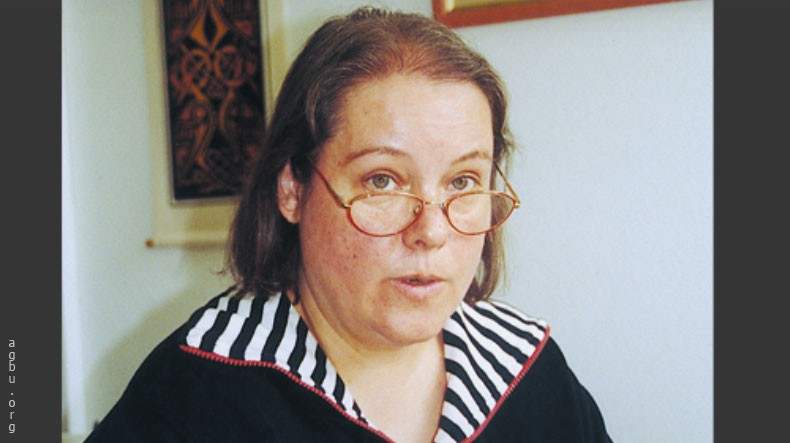
Tessa Hofmann: German Resolution Implies Impulses for Armenian Genocide Education and Research
Dr. Tessa Hofmann, prominent German scholar of Armenian studies and a strong advocate for the recognition and condemnation of the Armenian Genocide, said in an interview with Nvard Chalikyan that the German Bundestag resolution (02 June) was important as it stated that the ‘massacres’ and ‘expulsion’ of the Ottoman Armenians “constitute a crime of genocide” – with this act the German legislator became the 26th national legislator confirming the crimes of the Ottoman Turkey against the Armenian people of 1915-16 as Genocide. At the same time she expressed her disappointment with the fact that the German Chancellor and the foreign Minister didn’t take part in the voting; she also regretted that the resolution didn’t include an apology to the Armenians for the role the Imperial Germany played in the Armenian Genocide.
“For most Armenians the resolution was a very moving event that marked the formal recognition of the Ottoman state crimes by the German successor state which was once in alliance with the Young Turkish regime of genocidal perpetrators… Regrettably, the head of the government, her deputy and also the Foreign Minister were absent during the debate and voting”.
“Second, the German legislators missed their chance to apologize before the Armenian people for role that Imperial Germany played during WW1. At that time the German government remained indolent despite its precise information on the scope and details of the destruction of Ottoman Armenians”, – she said, reminding that Germany also benefitted from Armenian slave labor at the Baghdad railway construction.
“For me, it is not good enough to acknowledge legally and academically well explored facts 101 years post factum without making a convincing human gesture”, – she said.
Speaking about the effect the resolution will have in Germany, Dr. Hofmann noted that it marks the official recognition of the commemoration of the descendants of those victims in Germany. “More positively, the text of the German resolution implies impulses for education and research, provided that future decision-makers were interested in this and do not give in to the threats of influential Turkish NGOs in Germany… [I]t remains to be seen how the implementation of the resolution’s impulses in genocide awareness education and research on the Ottoman genocide(s) will progress”, – she said.
As for the reaction of Turkey to the resolution (i.e. calling back its ambassador from Berlin and calling the German ambassador to Ankara to the Turkish FO for official protest), Dr. Hofmann called it “a blend of organized ‘anger of the people’ and official threats, thinly disguised as the ‘warnings’ of President Erdoğan”.
Turkey argues that parliaments are not entitled to play the role of courts or historiography and the German legislators have emphasized that this resolution is not a legal verdict; however, Dr. Hofmann recalled that a legal verdict had already been issued by Ottoman Court Martials during 1919 and 1920, but was subsequently cancelled by the Kemalist counter-government in Ankara.
The German historian is skeptical with regard to Erdoğan’s announcement on possible cancellation of the EU-Turkey agreement on refugees, and agrees with the experts that both Germany and Turkey will carefully separate the issue of refugee policies from the ‘Armenia resolution’ and that the Turkish ambassador will soon return to his office in Berlin, as it happened in all previous cases.
Speaking about the prehistory of this resolution, Dr. Hofmann noted that the German Bundestag had been confronted with the demand to recognize the Armenian genocide (together with the Ottoman genocides against Aramaic speaking and Greek Orthodox Christians) for 16 years, and that to a large extent it was Pope Francis’ recognition of the Armenian Genocide that made the necessary shift.
In 2005, the Bundestag issued a non-legislative resolution in which it commemorated the ‘massacres’ and ‘expulsion’ of the Ottoman Armenians, admitting German involvement into the Ottoman genocide. “Scholars of genocide, human rights NGOs and Armenian communities of Germany have rightly criticized the resolution of 2005 for its avoidance of the term ‘genocide’, or its German synonym ‘voelkermord’”, – she said.
As a result of this criticism, a new initiative started at the occasion of the centenary, when MP Dr. Christoph Bergner of the ruling conservative party introduced a new resolution draft which contained the term ‘voelkermord’, albeit hidden in a complicated sentence at the end of the third paragraph. The German executive (government) nevertheless stopped even this very soft version of recognition in order not to provoke Turkey, Tessa Hofmann noted.
“Only after the address of Pope Francis on 12 April 2015 the German Bundestag reconsidered its position”, she highlighted, recalling that after the Pope’s message speakers of all fractions used the term ‘voelkermord’ during their speeches on 24 April 2015, but it was too late for any voting of the three pending resolution drafts. They were sent to the parliamentary Committee for Foreign Affairs. On 25 February 2016, the oppositional Green Fraction withdrew its draft resolution, after the chairman of the ruling party had agreed to an inter-fractional resolution, which was issued on 02 June.
Tessa Hofmann is a renowned German scholar of Armenian studies (author of over a dozen books on Armenian history, culture and the Armenian Genocide); she is also an outspoken human rights activist.
Interview by Nvard Chalikyan
Newsfeed
Videos






























